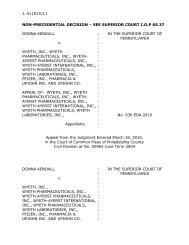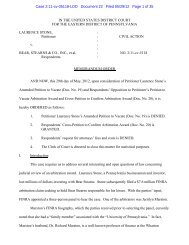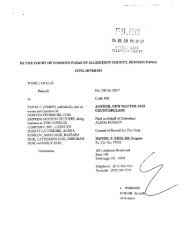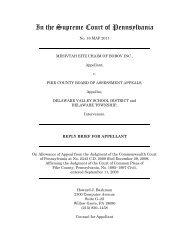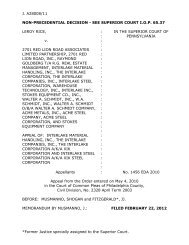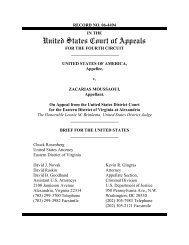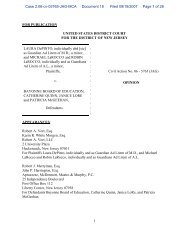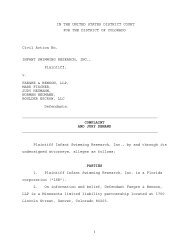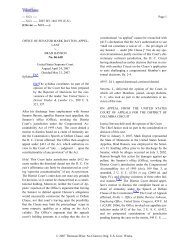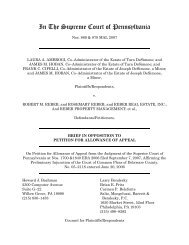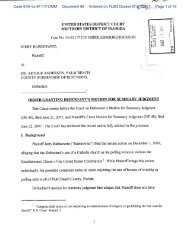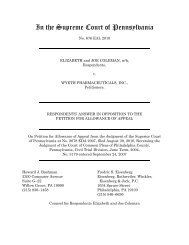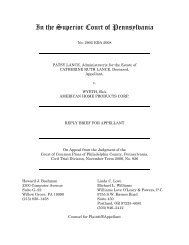petition for rehearing en banc - How Appealing
petition for rehearing en banc - How Appealing
petition for rehearing en banc - How Appealing
You also want an ePaper? Increase the reach of your titles
YUMPU automatically turns print PDFs into web optimized ePapers that Google loves.
Case: 07-4080 Docum<strong>en</strong>t: 108 Filed: 10/29/2010 Pages: 15<br />
Nos. 07-4080, 08-1030, 08-1072, 08-1106 9<br />
That Black and the others might start a paper in Mammoth<br />
Lake to compete with APC’s tiny newspaper there<br />
was a ridiculous idea; no one would pay them to promise<br />
not to do something they obviously would never want<br />
to do. But they argued that really the $5.5 million repres<strong>en</strong>ted<br />
managem<strong>en</strong>t fees owed them, and that they<br />
had characterized the fees as comp<strong>en</strong>sation <strong>for</strong> granting<br />
cov<strong>en</strong>ants not to compete in the hope that Canada,<br />
where a substantial perc<strong>en</strong>tage of the managem<strong>en</strong>t fees<br />
had be<strong>en</strong> g<strong>en</strong>erated, might not treat the fees as taxable<br />
income. Although Hollinger is a large, sophisticated,<br />
public corporation, no docum<strong>en</strong>t was found to indicate<br />
that the $5.5 million exp<strong>en</strong>diture was ever approved by<br />
the corporation or credited to the managem<strong>en</strong>t-fees<br />
account on Hollinger’s books. The checks were drawn on<br />
APC ev<strong>en</strong> though there was evid<strong>en</strong>ce that the def<strong>en</strong>dants<br />
had no right to managem<strong>en</strong>t fees from that <strong>en</strong>tity, and<br />
the checks were backdated to the year in which APC had<br />
sold most of its newspapers, the purpose being—or so the<br />
jury could find—to make the richly comp<strong>en</strong>sated cov<strong>en</strong>ants<br />
not to compete seem less preposterous.<br />
The evid<strong>en</strong>ce was certainly suffici<strong>en</strong>t to prove a pecuniary<br />
fraud, see Cleveland v. United States, 531 U.S. 12, 19-<br />
20 (2000); United States v. Orsburn, 525 F.3d 543, 546<br />
(7th Cir. 2008); United States v. H<strong>en</strong>nings<strong>en</strong>, 387 F.3d 585,<br />
589-90 (7th Cir. 2004), and the jury was correctly instructed<br />
on the elem<strong>en</strong>ts of such a fraud. But it was also<br />
instructed that it could convict the def<strong>en</strong>dants upon<br />
proof that they had schemed to deprive Hollinger and its<br />
shareholders of their right to the def<strong>en</strong>dants’ honest



